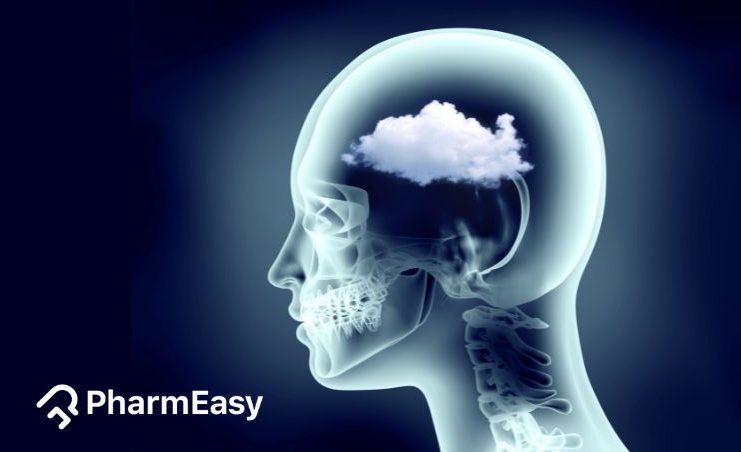Brain Fog And COVID-19: Let’s Clear The Confusion!
By Saksham Bhatia +2 more

Get more insightful and
helpful tips to
treat Diabetes for FREE



Download PharmEasy App




Register to Avail the Offer
Send OTPBy continuing, you agree with our Privacy Policy and Terms and Conditions
By Saksham Bhatia +2 more
Table of Contents
Have you ever experienced episodes where your mind seems fuzzy, everything seems confusing and performing the simplest of activities, such as reading the morning paper or solving a simple question in an exam, seems like a Herculean job for you?

Well, the reason behind this strange feeling can be brain fog!
Brain fog is a common phenomenon where you end up experiencing periods of confusion, headaches and brain cloudiness. When examined at the cellular level, brain fog is thought to be caused by inflammation which offsets our delicate hormonal balance. This imbalance impacts the entire system and can take a toll on the quality of your life.
Commonly, brain fog can be caused due to extreme stress, depression, lack of sleep and overworking. But lately, brain fog has been much in the news due to its close link with COVID-19 infection.
So, in this article, let us find out what exactly brain fog is and why COVID-19 causes it.
Brain fog is a term that describes the feeling of being mentally fuzzy, slow and spaced out. Some symptoms of brain fog that you are likely to experience are:
There are many ways that COVID-19 can damage the brain. Some can be devastating, such as encephalitis, strokes, and lack of oxygen to the brain. But other effects may be more subtle, such as the persistent impairment in sustained attention called as brain fog in layman’s terms, which can be temporary.
Dr. M.G. Kartheeka, MBBS, MD
There isn’t any concrete evidence as to why COVID-19 seems to cause brain fog. However, it is believed that psychological and physiological factors are at play. Once the coronavirus has invaded the system and enters the cells through the angiotensin-converting enzyme 2 (ACE2) receptor, the virus can also enter the brain tissue due to its characteristic of being neuro-invasive.
Many studies conducted have revealed that those who have suffered from COVID-19 experience complications such as altered consciousness or brain damage or brain disease which are referred to by the general term encephalopathy.
Case studies showed that high levels of inflammatory cytokine molecules, which are produced by immunity, were found to be present in the fluid that surrounds the brains of people who had recovered from COVID-19 infection probably a few weeks prior. One of the many factors of brain fog is inflammation within the brain which obstructs the ability of the neurons to communicate completely with each other.
Brain Fog is one of the commonest Long Covid Symptoms reported.
Brain fog and cognitive impairment are one of the common concerns of “long-covid” which need an inspection, close follow-up and management at the earliest possible opportunity, apart from that heart conditions digestive symptoms, and vascular issues are some other conditions of concern associated with Covid.
Dr. Ashish Bajaj – M.B.B.S, M.D.
Some ways in which COVID-19 can indirectly cause brain fog in people are as follows:
Exercising is important, Read 7 Ways In Which Exercise Benefits The Body!
As per WHO reports, brain fog was found to last for weeks and even months in some people after their respiratory symptoms ceased to exist – Long Covid Symptom.
In a study conducted with a group of 60 people, it was found that 55 per cent of people continued to experience neurological symptoms post three months of their COVID-19 infection. Such symptoms included:
The best solution to tackle brain fog induced by COVID-19 infection is to adopt a healthy lifestyle. Some ways to boost mental function and reduce symptoms of brain fog are listed below:
Journal your distracting thoughts if you are worried about certain aspects of your life.
Brain fog is a very common side effect of COVID-19 infection, which can last from a couple of weeks to months after your illness has subsided. If the symptoms of brain fog give rise to cognitive issues that disrupt your productivity or continue to impede your quality of life even after following the healthy habits mentioned above, discuss with your doctor the best way to manage the symptoms alternatively.
Disclaimer: The information included on this site is for educational purposes only and is not intended to be a substitute for medical treatment by a healthcare professional. Because of unique individual needs, the reader should consult their physician to determine the appropriateness of the information for the reader’s situation.

Leave your comment...
Comments